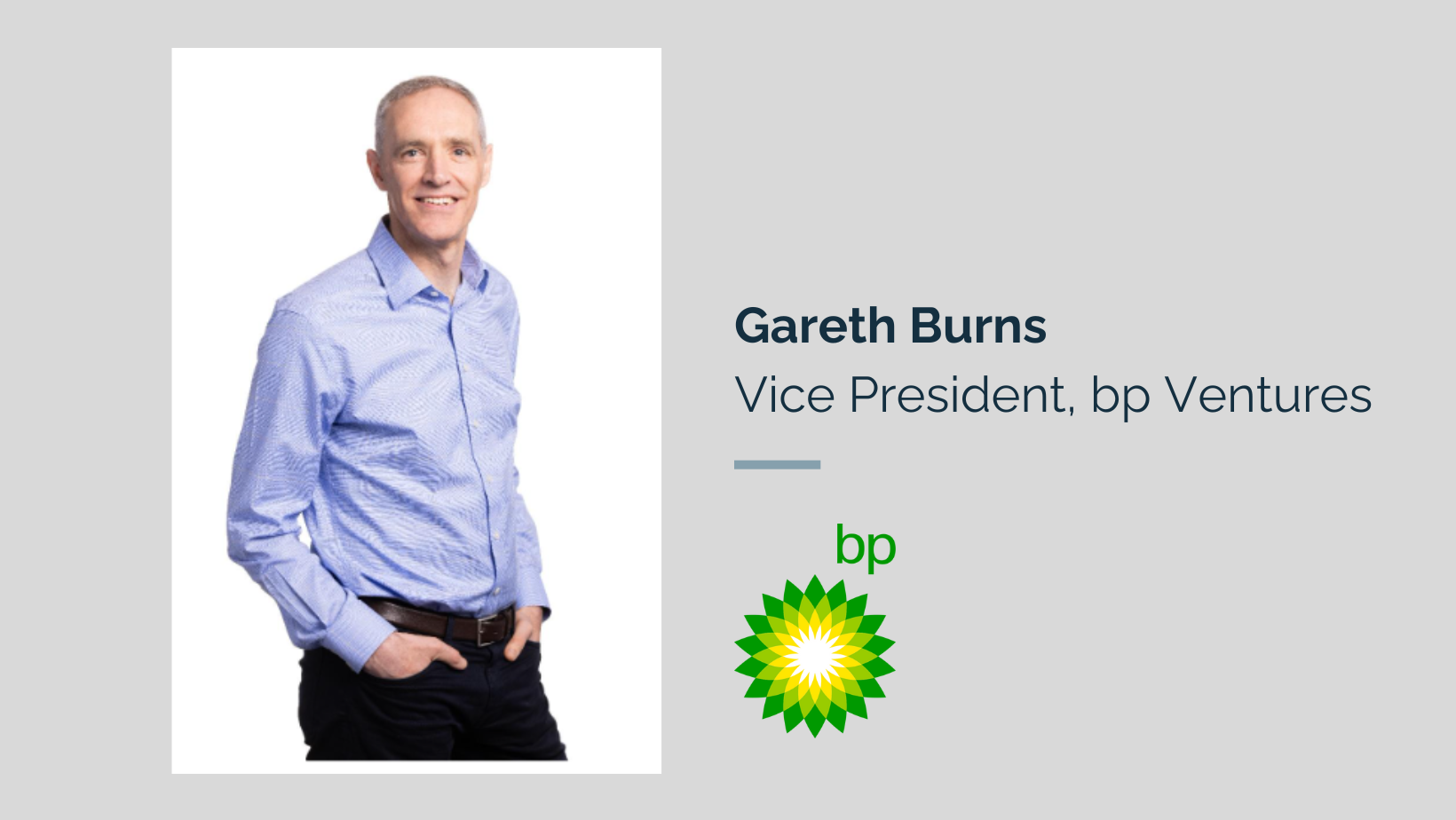bp Ventures invests in innovative technologies and visionary founders which could help to revolutionise the energy sector. Their investments support bp’s transition growth engines, while also enhancing core operations and helping pave the way for future disruptive opportunities.
Gareth Burns is the VP of bp Ventures. Prior to joining bp, Gareth established and led Equinor Ventures. He has held various management positions throughout his 30+ year career and has worked in all areas of the energy value chain.
Gareth is a Fellow of the Institute and Faculty of Actuaries and has a BSc in Actuarial Mathematics and Statistics from Heriot-Watt University in the UK.
You joined BP just over a year ago. Can you tell us about how you landed at BP and how your experience has been so far?
I joined bp Ventures in January 2023 to lead the global team in championing and supporting some of the most innovative technologies and founders in the energy sector.
When the opportunity to join bp came up, I couldn’t say no. I was tasked with creating a bold and exciting new strategy for one of the sector’s longest running and most established venturing units.
One of the most exciting moments of my work so far at bp Ventures has been the launch of Fund V and rollout of our refreshed strategy. Under Fund V, we plan to deploy around $150-200m a year.
Outside of the strategy and investments, I’ve been continuously impressed by the calibre and dynamism across the team, who sit in offices between London, Houston, and San Fransisco. The team continues to grow, and we’re pleased to have recently appointed Kevin Rodrigues as Regional Managing Director for Europe.
bp Ventures focuses on investing in bp’s transition growth engines. Why has your team chosen these areas to focus on?
Our investments support bp’s transition growth engines, while also enhancing core operations and helping pave the way for future disruptive opportunities.
bp’s ambition is to be a net zero company by 2050 or sooner and to help the world get to net zero. As part of its strategy, bp aims to grow the share of our capital expenditure allocated into our lower carbon and other transition businesses – what we at bp call ‘transition growth engines’, reaching 50% in 2030 – these are: bioenergy, convenience, electric vehicle (EV) charging, renewables & power, and hydrogen. The growth engines are areas which require significant innovation to develop cost effective and reliable energy solutions for the future – we see venturing as having a key role to play in driving down costs, and accelerating scale of our growth engines.
While the majority of our investment goes into backing our five growth engines, we reserve capital to back technologies that support our core business of today. We also challenge our investors to back technologies that are a bit further away from commercialisation but have huge potential – those that could provide huge value to bp by informing future strategies.
What are some of the challenges you and the bp Ventures team face in investing in these sectors?
The reality is that if scaling energy technology was easy, it would have been done already – it’s tough. A lot of the technologies that we back are novel, they seek to solve problems for which we did not yet have solutions, and this means we are often working with founders to tackle challenges that few of us have experience overcoming – whether that’s scaling geothermal energy, or lowering the cost of green hydrogen production, or seeking to improve inner city air quality.
Fortunately, we are not just a small team of investors. Our team has a blend of industry and technology expertise. We come to the table with experience, empathy, some of us have acted as founders before.
We also work with great founders, so we’re often working as a team – bp, bp Ventures, and the company, to reach an outcome that benefits us all.
What is a startup you recently invested in that you are really excited about and why?
One that springs to mind is Electric Hydrogen, or EH2, which we invested in via its $380m Series C round.
It is one of our hydrogen investments and focuses on bringing low-cost electrolyser solutions to market. EH2 plans to deliver and commission 100 megawatt (MW) electrolyzer systems, each capable of producing nearly 50 tons of green hydrogen per day.
We are focused on technology evolving in this space as we see a clear market need for lower cost hydrogen solutions. We also have Advanced Ionics, Syzygy and Hysata in our portfolio – three other interesting hydrogen businesses that we’re excited about.
How does bp ventures interact with other business units within the bp organization to integrate new technologies?
As we tell founders, access to bp’s deep and global network is an important accelerant in scaling their companies. Without going too into the intricacies of how bp operates, ventures sits within the group’s strategy and sustainability team, so we are right at the heart of the company. We also work very closely with our different business units when approaching a deal, whether that be our core Production and Operations entity or our growing Gas and Low Carbon Energy portfolio, it is important to understand how a company could make an impact before we write the cheque.



